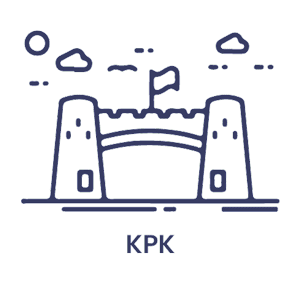Quality of Leadership
TMS schools need competent individuals who can provide direction, guidance and support in their school’s performance in providing quality learning opportunities for all learners.
In this regard, school leadership needs to be a unifying focus for all staff and activities in a school, providing the impetus for sustained, high-quality provision.
Effective TMS school leadership is monitored against key principles about what is required in order to ensure effective teaching and learning in TMS schools. These principles are:
- School heads demonstrate a set of core professional values that include commitment to the professional role, inspiring trust, ensuring care, professional integrity and respect for all
- Having a clear understanding and knowledge of the core work of TME schools, the values, vision and mission of the organization, which forms the foundation for the continuous development of a successful teaching and learning culture in school
- The ability to manage the school environment, structures and resources in ways that enable the development of a successful teaching and learning culture in school
- The ability to distribute leadership responsibilities among staff in order to build leadership capacity and effective teams in school, with a view to sustainability and succession planning
- Demonstrating an understanding that the school head is the lead learner in school, who manages the creation, sharing and review of the strategic vision, ethos and aims of the organisation across the whole of the school provision
- The ability to inspire and create a commitment to constant improvement through modelling and communicating the practice of reflection and self-evaluation
The principles of leadership are further divided into the following key practice elements that should be regularly monitored:
Leading Learning and Teaching
A well-functioning school requires a leader who:
-
- Creates a culture of professional learning among teachers that fosters continuous improvement in teaching and assessment, and students’ learning, as the core function of the school
- Fosters the development of the full range of teacher professional competences, and works to ensure that teacher professional development provided leads to improved student learning in the school
- Develops a school ethos and sets school-centric goals to realise the holistic potential of each learner
- Develops and implements approaches to leadership which promote professional responsibility and accountability
- Manages the effective implementation of the school curriculums
Leading School Development
A well-functioning school requires a leader who:
-
- Establishes and communicates the mission and vision for the school and empowers and supports others in the school in the achievement of these
- Engages in a continuous process of whole school self-evaluation and designs and implements a strategic school development plan for improvement
- Builds and maintains relationships with parents and the wider school community
- Promotes communication within the school and effectively manages challenging and complex situations
- Manages and leads change
Building Culture, Capacity and Teams
A well-functioning school requires a leader who:
-
- Promotes a learning culture that fosters improvement, collaboration, innovation and creativity, and recognises and celebrates teachers’ individual and collective contributions and achievements to the school
- Builds teams and empowers all teachers to take on, and carry out, leadership roles, in order to build leadership capacity within the school
- Facilitates the development of learner voice and learner leadership within the school through clubs and societies, and other bodies, such as a learner council






